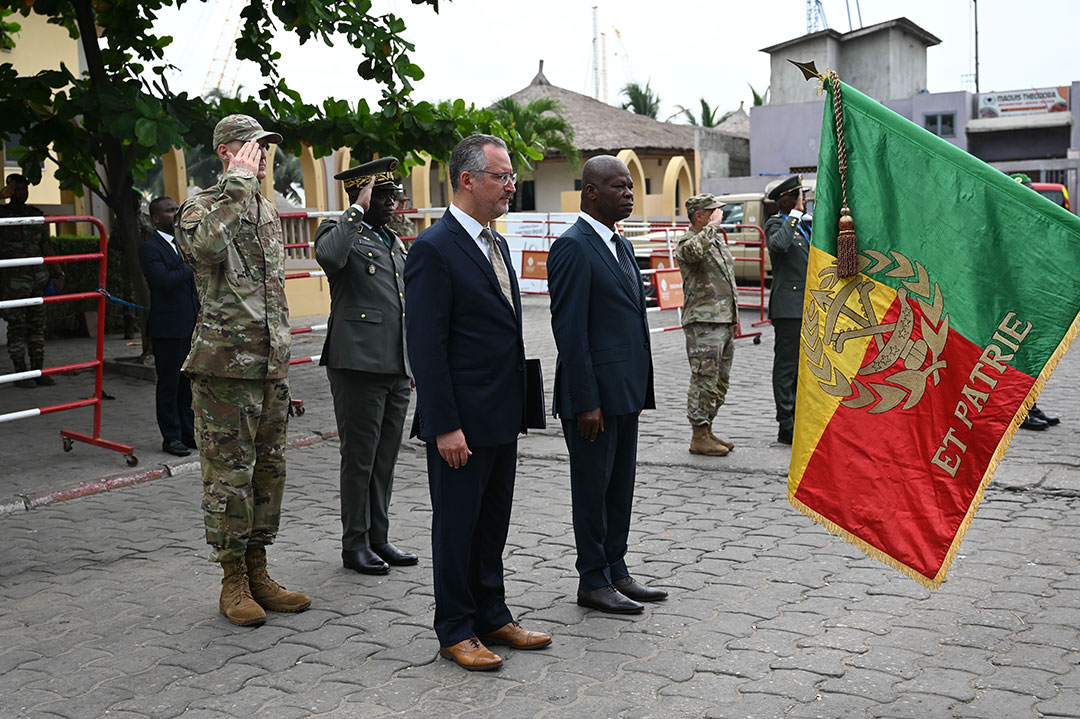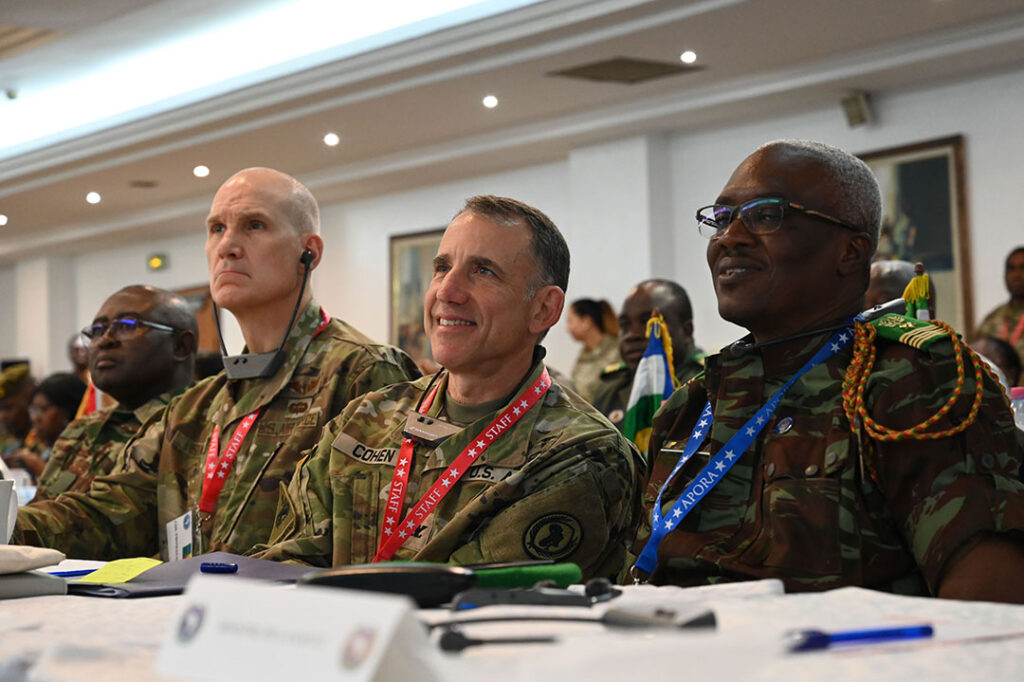ADF STAFF
Health, military and government officials from more than 30 African nations have concluded a conference of the African Partnership Outbreak Response Alliance that included a simulated response to a mass casualty event, a first for the annual conference.
The alliance, known as APORA, met November 4 to 8 in Cotonou, Benin. The meeting emphasized continued international cooperation, military-to-military engagement, and the need for a permanent APORA headquarters in Africa.
The mass casualty simulation included 345 military personnel, first responders and civil protection forces, highlighting the collaboration and structured approach necessary for effective emergency response.
“This edition will test, among other things, the capacity of our countries to respond promptly and efficiently to any possibility,” Benin’s Minister of the Interior and Public Security Alassane Seidou told the gathering. “Our country, like others in Africa and the world, has been confronted in recent years with the epidemiological risks and has been led to develop, thanks to government engagement, the capacity to be resilient and fight back.”
Cameroon Armed Forces Col. Julius Nwobegahay, APORA president, noted the alliance’s expanding membership and announced plans to establish national APORA task forces. He underscored the importance of the first-ever live simulation exercise as a milestone in testing real-world readiness. He said that lessons learned from the Ebola epidemic helped with a swift response to COVID-19, illustrating the power of a coordinated, continentwide strategy.

Dr. Thierno Balde, representing the World Health Organization Regional Office for Africa (WHO/AFRO) discussed the pressing need for Africa to address multiple concurrent health crises, including floods and the Marburg and Mpox viruses. Representing 47 countries, WHO/AFRO partners with ministries of health, using artificial intelligence and local languages to improve emergency detection. Balde introduced WHO’s adaptable Incident Management System, designed to streamline rapid, multidisciplinary responses.
Rwanda’s Infectious Control Coordinator shared critical insights from the recent Marburg outbreak in his country and stressed the need for central isolation and rapid diagnostics for effective response. The country has confirmed more than 60 cases of Marburg, including some deaths. It was the country’s first outbreak of Marburg, a rare but severe viral hemorrhagic fever similar to Ebola.
The conference marked APORA’s 10th anniversary. Since its founding, the alliance has expanded from an initial 12 member countries to 32, demonstrating its growing influence and commitment to strengthening outbreak response capabilities across Africa. The U.S. Centers for Disease Control and Prevention, the U.S. Defense Threat Reduction Agency, the WHO and the Gates Foundation were represented at the conference.
Health security alliances have become a critical component of global health security, addressing known and emerging threats that affect economies, politics and societies. Officials at the conference stressed that collaboration between military and civilian sectors allows for the preparation, mitigation and response to such threats. Specifically, civil-military partnerships provide unique opportunities for operational and strategic engagement, from local to regional and international levels.
APORA began in 2014 after the West Africa Ebola outbreak. The U.S. Department of Defense developed the alliance through U.S. Africa Command and U.S. Air Forces in Europe and Air Forces Africa. The first countries joined to mitigate the threat of emerging and reemerging pathogens due to lack of early warning detection and response systems. APORA provides a forum for partners to discuss how best to prepare for epidemics.
“During a busy week we stayed focused on the strategies and actions needed to control epidemics or emergencies in Africa,” Col. Maj. Etienne Léonce Ahouanvoeke, Benin’s central director of Army health, said during closing ceremonies. “Since the start of activities for this conference, we have observed from close and faraway a collaboration and coordination that promises to yield excellent results.”
Participation in APORA is open to all African nations. One notable development is the establishment of an APORA Task Force in each member country, which will serve as the foundation for a broader APORA network.
This year’s conference introduced a new emphasis on operational response, including improving surveillance and early warning systems, improving laboratory capacity, and bolstering the health care workforce. To achieve these goals, APORA has focused on team building through tactical training, development of standard operating procedures and tabletop exercises. These initiatives will ensure that countries and their partners can swiftly and effectively respond to outbreaks.
By building stronger and more resilient health systems, APORA aims to reduce the effects of infectious diseases on the continent and improve the overall health of African populations.

